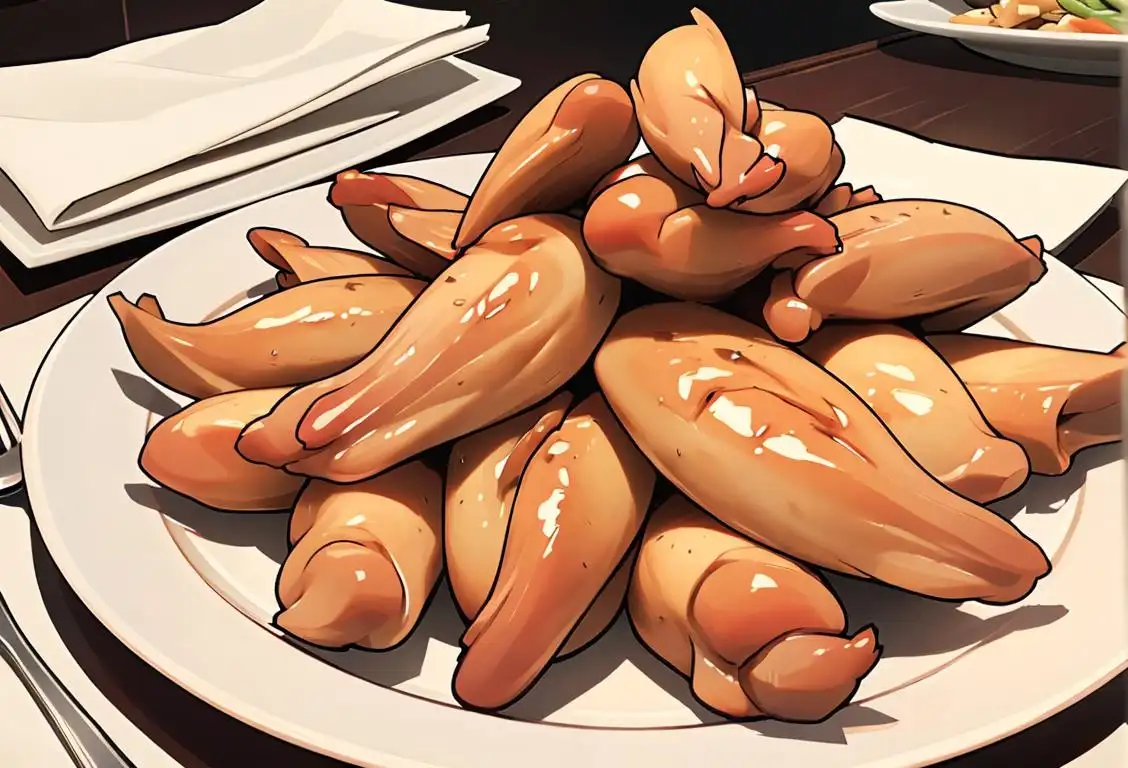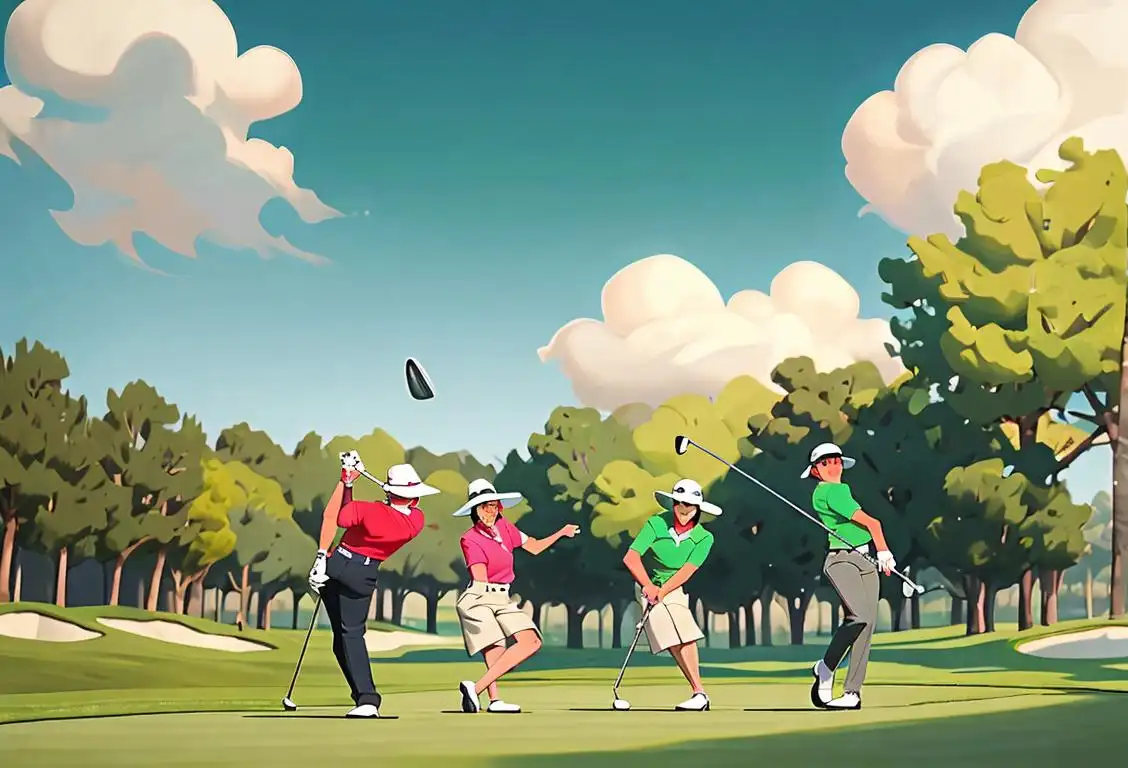National Darts Day

Welcome to the exciting world of National Darts Day! Get ready to aim, throw and score like a champion as we celebrate this beloved sport that combines precision, strategy, and a whole lot of fun. Whether you're a seasoned pro or someone who occasionally throws darts in the pub, this day is all about embracing the spirit of competition and camaraderie. So grab your darts, warm up your throwing arm, and let's dive into the fascinating history and celebration of National Darts Day!
When is Darts Day?
It's national darts day on the 25th April.
History of National Darts Day
Although National Darts Day may not have a long-standing tradition like some other national days, the love for this addictive pub game has been around for centuries. The origins of darts can be traced back to the medieval era in England when soldiers would toss short arrows at the bottom of a wine barrel. Who knew a game born out of wine-filled merriment would become such a popular pastime?
It wasn't until the late 19th century that darts as we know it today started to take shape. The standardization of scoring systems, dartboard design, and official rules turned it into a serious sport embraced by enthusiasts worldwide. And with the advent of electronic dartboards, the game entered the digital age, adding a touch of modernity to this traditional pursuit.
How to Celebrate National Darts Day
Celebrating National Darts Day is as easy as throwing a bullseye! Here are some fun ways to join in the festivities:
- Organize a darts tournament with your friends, family, or colleagues. Whether it's a casual round-robin or a fiercely competitive competition, the thrill of hitting the target will bring out the competitive spirit in everyone.
- Visit a local pub or sports bar that has dartboards and challenge your friends to a friendly match. Enjoy a pint or two while aiming for those high-scoring shots. Just remember to throw responsibly – no darts after one too many drinks!
- If you prefer a quieter celebration, set up your own dartboard at home or in your backyard. Perfect your aim, practice new techniques, and maybe even invite a few pals for a friendly game.
Did You Know?
Did you know that the highest possible score achievable with three darts in a game of standard 501 is 180? It's called a 'ton 80,' and it's the ultimate aim for any darts player. So, next time you step up to the oche (that's the throw line, by the way), channel your inner professional and aim for perfection!
History behind the term 'Darts'
15th century
Origins of the term 'darts'
The term 'darts' originates from the Middle English word 'dart', which referred to a pointed missile thrown by hand or shot from a weapon. It was derived from the Old French word 'dart', meaning 'spear' or 'javelin'. This term was later applied to a game that involved throwing small missiles at a target.
1300s
Origin of the term 'darts'
The term 'darts' is believed to have originated in the 1300s. It comes from the Old French word 'dart' which means 'spear' or 'throwing weapon'. In the early days, darts were actually used as a form of warfare and were thrown at enemies. The concept of using darts as a recreational game began to take shape later on.
1896
Origins of the term
The term 'darts' originated in the year 1896. It was derived from the French word 'dard', which means 'dart' or 'arrow'. This choice of term is representative of the way the game is played, with players throwing pointed projectiles at a target.
19th century
The emergence of modern darts
During the 19th century, the game of darts as we know it today started to take shape. It was played in pubs and taverns, often as a pastime for the working class. The sport gained popularity and began to evolve with standardized rules and equipment. The primary objective was to hit specific areas on a traditional dartboard, which consisted of numbered sections and a central bullseye.
1908
Standardization of dartboard design
In 1908, the game of darts underwent a major development with the standardization of dartboard design. The London Fives dartboard was introduced, which divided the scoring areas into different sections. This new design became the foundation for modern dartboards that we see today.
1800s
Evolution of the game
During the 1800s, the game of darts began to gain popularity as a social activity. It was played in pubs and taverns, providing entertainment for patrons. Initially, the game was played with short, wooden missiles or arrows. The dartboard, as we know it today, also started to take form during this time.
1908
The British Darts Organisation (BDO)
In 1908, the British Darts Organisation (BDO) was founded, with the aim of promoting and organizing the sport of darts. The BDO has since been instrumental in hosting tournaments and establishing rules and regulations for competitive play. It has played a crucial role in elevating darts to a recognized and respected sport globally.
1924
The National Darts Association is formed
In 1924, the National Darts Association was formed in England. This association played a crucial role in promoting darts as a sport and establishing standardized rules and regulations. It helped in popularizing the game and organizing competitive events, paving the way for its future growth and recognition.
1896
Standardization of the game
In 1896, the modern standardization of darts began with the formation of the National Dart Association in England. The association established rules and regulations for the game, including the official distances and scoring system. This marked a significant step in the popularization and organization of darts as a competitive sport.
1930s
Invention of the modern dartboard
In the 1930s, a standard design for the modern dartboard was finalized. Known as the 'clock' or 'clock face' design, it featured the now-familiar arrangement of numbered sections. This design not only provided a consistent target for players but also facilitated different game variations within darts.
1935
The world's first televised dart tournament
In 1935, darts reached a new milestone when the world's first televised dart tournament took place. This event, held at Alexandra Palace in London, marked the beginning of darts becoming a spectator sport. The televised tournament attracted a wide audience and significantly increased the game's popularity.
1901
Invention of the bristle dartboard
In 1901, an Englishman named Brian Gamlin invented the bristle dartboard. This innovation replaced the previous wooden dartboards, as the bristle material allowed darts to stick to the board more effectively. The new dartboard design improved the overall gameplay experience and became the standard for darts around the world.
1930s
First World Darts Championship
The first World Darts Championship took place in the 1930s. Organized by the News of the World newspaper, the tournament brought together top darts players from around the globe. This event played a crucial role in further popularizing darts as a competitive sport and solidifying its position in the world of professional gaming.
1978
The formation of the World Darts Council
The year 1978 saw the formation of the World Darts Council (now known as the Professional Darts Corporation). This organization aimed to advance the sport further by promoting professionalism and improving competitive standards. The formation of the World Darts Council contributed to the global growth of darts and established it as a legitimate professional sport.
1978
Launch of the Professional Darts Corporation (PDC)
The Professional Darts Corporation (PDC) was established in 1978 as a rival organization to the BDO. This marked the separation of professional darts into two governing bodies. The PDC has been responsible for organizing prestigious tournaments and has contributed to the growth and commercialization of the sport, attracting larger audiences and substantial prize funds.
2009
Inclusion in the World Masters Games
In 2009, darts achieved another milestone by being included as an official sport in the World Masters Games. This multi-sport event is the largest of its kind and features athletes from various disciplines. The inclusion of darts in the World Masters Games further solidified its status as a recognized and respected sport worldwide.
1978
Creation of the Professional Darts Corporation
In 1978, the Professional Darts Corporation (PDC) was formed. This breakaway organization aimed to provide a more lucrative platform for professional dart players. The PDC introduced higher prize money, bigger tournaments, and enhanced TV coverage, elevating the status of darts even further and turning it into a widely televised spectator sport.
Did you know?
Did you know that the highest possible score achievable with three darts in a game of standard 501 is 180? It's called a 'ton 80,' and it's the ultimate aim for any darts player. So, next time you step up to the oche (that's the throw line, by the way), channel your inner professional and aim for perfection!Tagged
awareness fun sportsFirst identified
25th April 2016Most mentioned on
25th April 2016Total mentions
27Other days
Wing Day
Left Handers Day
Golf Day
Fitness Day
Foundation Day
Cancer Survivors Day
Dance Day
Memorial Day
Gymnastics Day
Student Athlete Day









